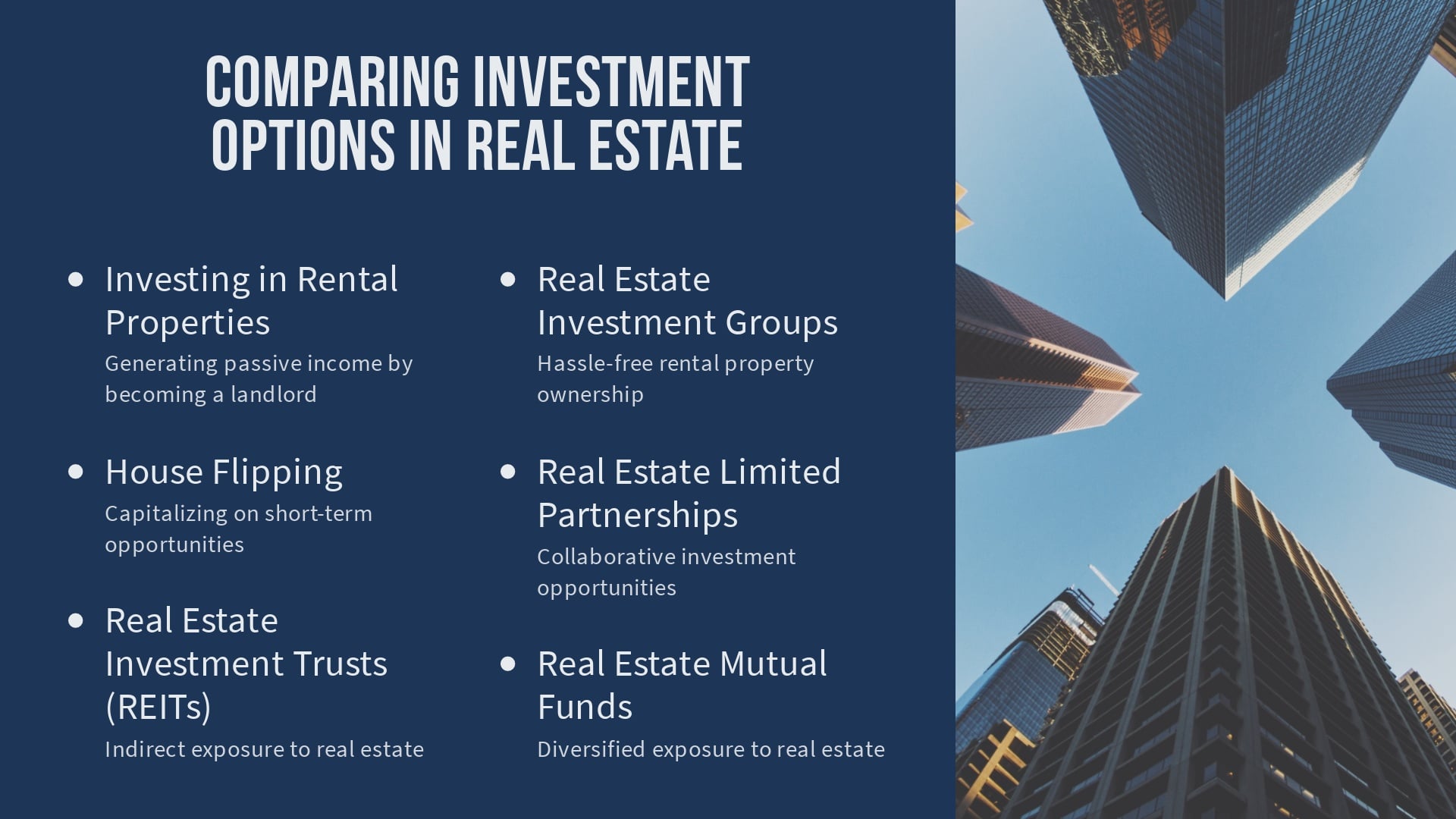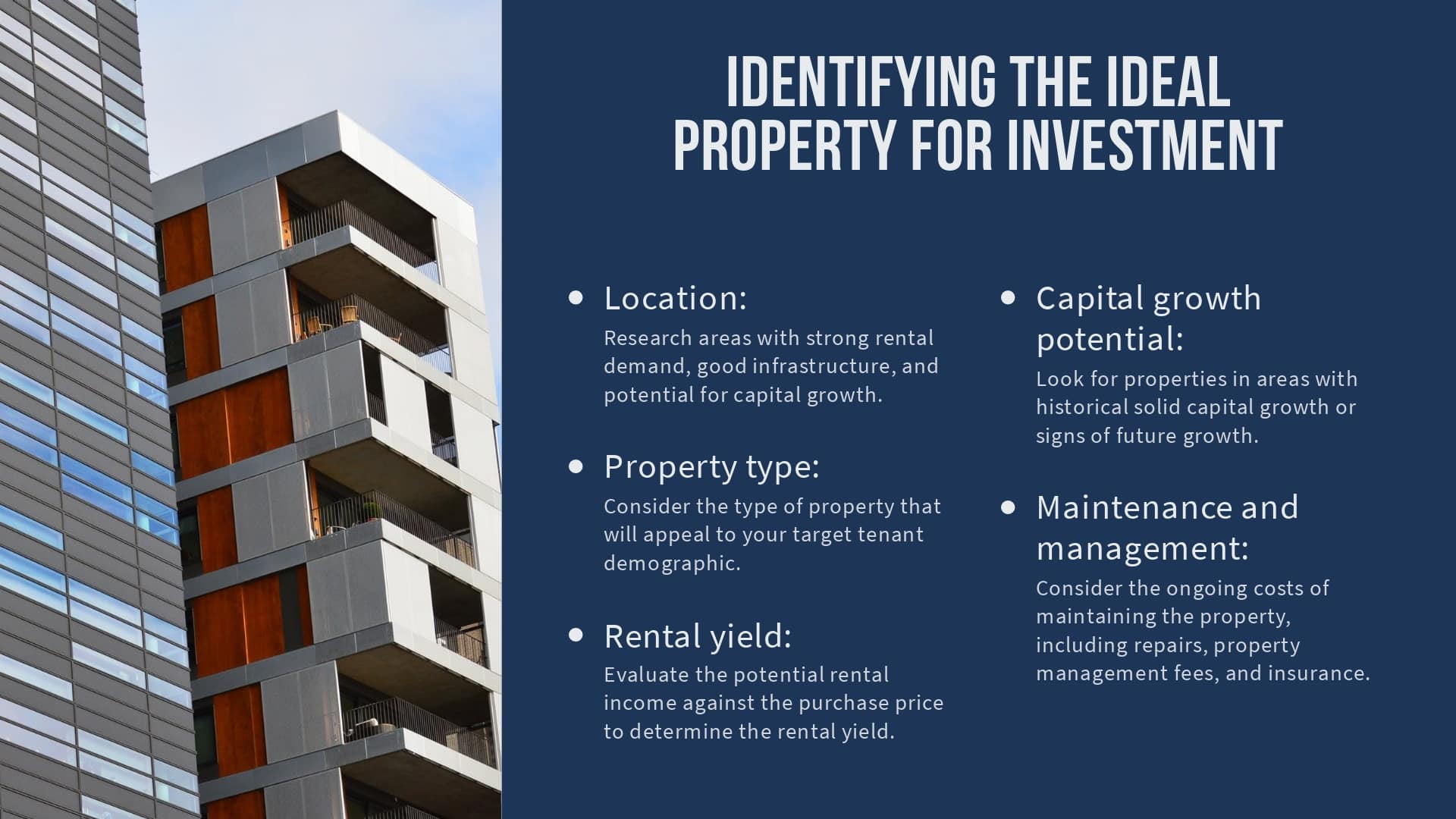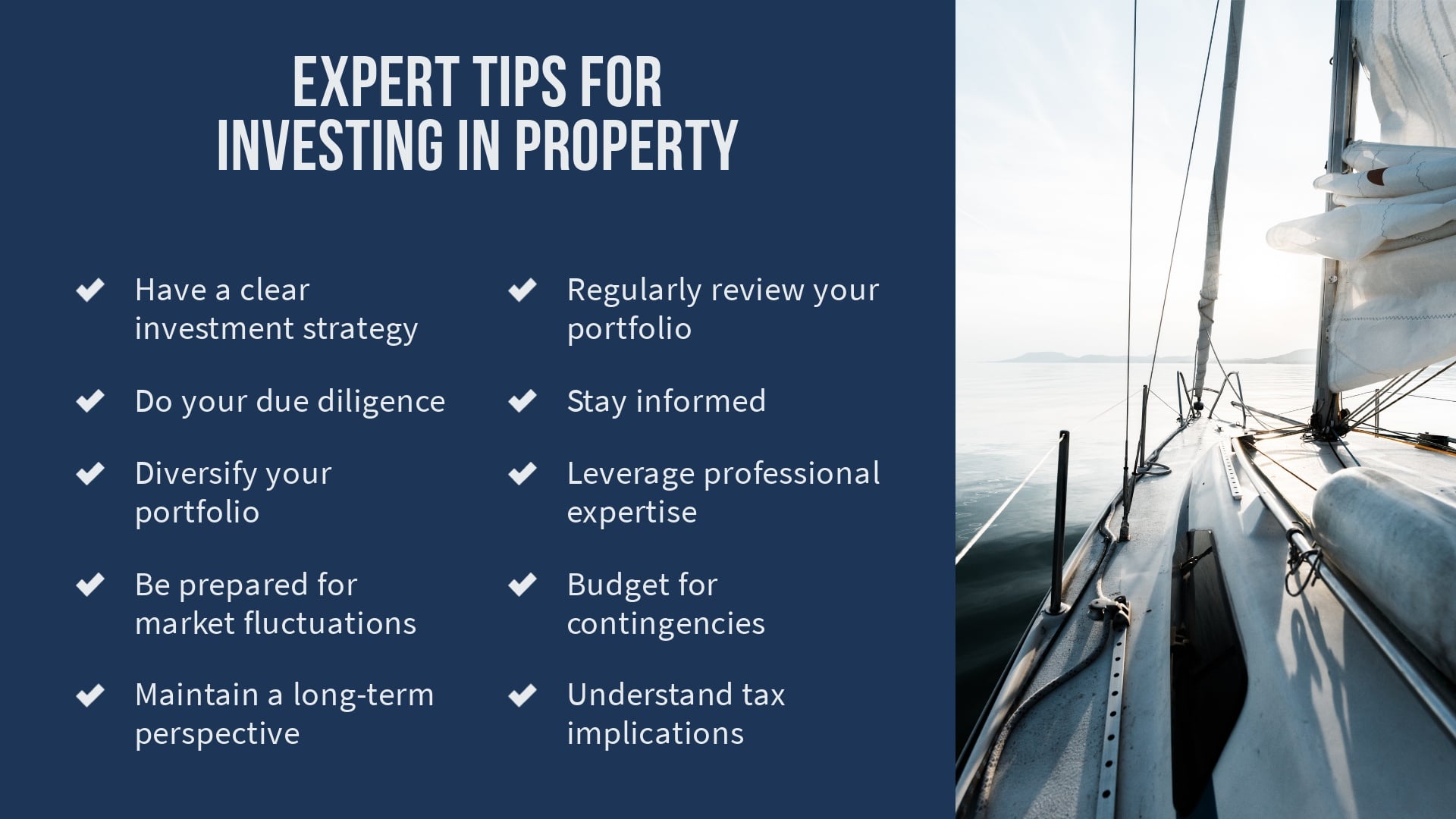The Ultimate Guide to Real Estate Investing for Beginners
Real estate investing is a highly sought-after investment strategy that offers numerous benefits. This guide will explore the various ways to invest in real estate, its advantages, and potential risks.
Table of Contents
Property investment is an attractive option for individuals looking to generate income and build wealth over time. Whether you’re a seasoned homeowner or new to the property market, this comprehensive guide covers the basics of investing in property.
Comparing Investment Options
Before diving into property investment, evaluating other investment opportunities is essential to make an informed decision.
Property
Historically, property investments have demonstrated consistent annual growth rates, with houses showing a 6.8% increase and apartments 5.9% over the past 25 years. Some key benefits of property investment include:
- Potential capital growth over time
- Rental income from tenants
- Tax benefits
- Tangible asset ownership
- Lower volatility compared to other investments
- Opportunity for value-add through renovations
However, investors should also be aware of the risks, such as the potential for negative returns or high entry costs.
Shares
Investing in shares, or stock market equities, is another popular option for wealth generation. Shares provide part-ownership in a company or fund and can pay dividends based on performance. Some advantages of share investment include:
- Passive income from dividend payouts
- Low entry costs compared to property
- Automation of investment strategy
- Liquidity of assets
On the other hand, share investment can be riskier than property, with potential losses and unpredictable short-term market fluctuations.
Cryptocurrency
Cryptocurrency is a relatively new investment avenue gaining popularity among younger investors. These digital currencies can be used for goods and services transactions and may offer returns if their value increases. However, cryptocurrency investments are notoriously volatile, with limited long-term data and few regulatory safeguards.
Rental Properties: Generating Passive Income
Becoming a Landlord
Investing in rental properties is a common strategy for generating passive income. As a landlord, you’ll be responsible for maintenance, finding tenants, and managing issues. Therefore, choosing suitable properties and tenants can significantly reduce the likelihood of problems.
Rent Calculation and Profit Generation
To determine an appropriate rent amount, consider the location of the property and the expenses associated with maintaining it. Charging enough to cover costs until the mortgage is paid off allows most of the rent to become profit afterward. Additionally, property appreciation can result in increased profits if you decide to sell or leverage the equity for further investments.
House Flipping: Capitalizing on Short-Term Opportunities
Repair and Update
House flipping involves:
- Purchasing undervalued properties.
- Making necessary repairs and updates.
- Quickly selling them for a profit.
This approach requires a keen eye for potential value increases and the ability to complete the work efficiently.
Hold and Resell
An alternative flipping strategy involves:
- Buying properties in rapidly rising markets.
- Holding them for a short period.
- Selling them at a profit.
Both methods carry risks, but successful flips can result in significant returns on investment.
Real Estate Investment Trusts (REITs): Indirect Exposure to Real Estate
REITs offer investors indirect exposure to real estate without the hassle of physical property. Instead, these trusts are bought and sold on major exchanges like stocks and exchange-traded funds (ETFs). The definition of a REIT, 90% of taxable profits must be paid out as dividends to shareholders, providing regular income for investors.
Real Estate Investment Groups: Hassle-Free Rental Property Ownership
Real estate investment groups (REIGs) function like small mutual funds for rental properties. These groups allow investors to own rental properties without the responsibilities of being a landlord. Instead, a company manages the properties, handling maintenance, advertising, and tenant relations in exchange for a percentage of the monthly rent.
Real Estate Limited Partnerships: Collaborative Investment Opportunities
Real estate limited partnerships (RELPs) are formed to purchase and hold portfolios of properties or sometimes just one property. An experienced property manager is a general partner, while outside investors provide financing in exchange for ownership as limited partners. Profits are realized through periodic income distributions and property sales when the partnership dissolves.
Real Estate Mutual Funds: Diversified Exposure to Real Estate
Real estate mutual funds primarily invest in REITs and real estate operating companies, allowing investors to gain diversified exposure to real estate with relatively small capital. In addition, these funds offer the advantage of liquidity and access to analytical and research information provided by the fund.
Advantages of Real Estate Investing
Diversification and Protection
Real estate investing can enhance an investor’s portfolio by providing competitive risk-adjusted returns and diversification. It also serves as a hedge against inflation, as rising demand for real estate drives rents and property values higher.
Leverage Opportunities
Real estate investing offers the advantage of leverage, allowing investors to use debt to finance larger purchases. In addition, mortgages enable investors to control properties and their equity by paying a fraction of the total value, resulting in increased potential for profit.
Obtaining an Investment Home Loan
When you’re ready to invest in property, securing an investment home loan is an essential step:
- Research home loan options: Investigate various options available, including fixed, variable, and interest-only loans. Each type has its benefits and drawbacks, so choosing the one that best suits your investment strategy and financial situation is crucial.
- Assess your borrowing capacity: Evaluate your financial situation to determine how much you can borrow. Your borrowing capacity depends on your income, credit history, and existing debts.
- Apply for pre-approval: Before searching for a property, apply for a home loan pre-approval. This will clearly indicate how much you can borrow, allowing you to target properties within your budget.
- Find the right property: Once you have pre-approval, search for an investment property that meets your criteria, such as location, rental yield, and potential for capital growth.
- Make an offer and finalize the loan: Once you find a suitable property, make an offer or bid at auction. If successful, finalize your home loan and complete the necessary paperwork.
Identifying the Ideal Property for Investment
Finding the right property for investment is crucial to your success. Here are some factors to consider:
- Location: Research areas with strong rental demand, good infrastructure, and potential for capital growth.
- Property type: Consider the type of property that will appeal to your target tenant demographic, such as families, professionals, or students.
- Rental yield: Evaluate the potential rental income against the purchase price to determine the rental yield, which will help you assess the property’s income-generating potential.
- Capital growth potential: Look for properties in areas with historical solid capital growth or signs of future growth, such as planned infrastructure projects or economic development.
- Maintenance and management: Consider the ongoing costs of maintaining the property, including repairs, property management fees, and insurance.
Managing Your Rental Property
To ensure your investment property runs smoothly, follow these tips for managing a rental property:
- Select quality tenants: Conduct thorough background checks on prospective tenants, including rental history, employment status, and credit history.
- Maintain open communication: Keep the lines of communication open with your tenants, addressing any concerns or issues promptly and professionally.
- Regular property inspections: Schedule regular inspections to ensure the property is well-maintained and address any maintenance issues before they escalate.
- Property management: Consider hiring a professional property manager to handle the day-to-day management of your investment property, including rent collection, maintenance, and tenant disputes.
- Stay informed about the legislation: Familiarize yourself with relevant rental property laws and regulations to ensure you comply with your obligations as a landlord.
Expert Tips for Investing in Property
To maximize your chances of success, follow these expert tips for investing in property:
- Have a clear investment strategy: Determine your investment goals and devise a strategy that aligns with them, focusing on either capital growth, rental income, or a combination of both.
- Do your due diligence: Research the property market, analyze historical data, and consult industry experts to make informed decisions about your investment property.
Diversify your portfolio: Avoid putting all your eggs in one basket by investing in different property types, locations, and asset classes. This will help to manage your risk and optimise your investments.
- Be prepared for market fluctuations: Property markets can experience growth, stagnation, or decline periods. Be prepared to adapt your investment strategy to changing market conditions and have a contingency plan.
- Maintain a long-term perspective: Property investment is generally considered a long-term wealth-building strategy. Be prepared to hold onto your investment for at least five to ten years to maximize capital growth potential.
- Regularly review your portfolio: Regularly assess your investment properties’ performance to ensure they align with your investment goals. This may involve refinancing, renovating, or selling underperforming assets and reinvesting in better-performing properties.
- Stay informed: Stay updated with property market trends, economic indicators, and legislative changes that may impact your investments. This knowledge will help you make more informed decisions and adapt your strategy.
- Leverage professional expertise: Engage the services of professional advisors, such as financial planners, property managers, and tax specialists, to help you navigate the complexities of property investment.
- Budget for contingencies: Ensure you have sufficient funds for unexpected expenses, such as maintenance, vacancies, and interest rate increases. This will help you maintain your investment through challenging times.
- Understand tax implications: Familiarize yourself with the tax implications of property investment, including income tax, capital gains tax, and property-specific deductions. Consult a tax professional to ensure you maximize your tax benefits and stay compliant with tax laws.
Final Thoughts
Real estate investing provides many opportunities for generating income, diversifying portfolios, and building wealth. From rental properties to REITs, there is an investment strategy suitable for every investor’s risk profile.
Our licensed real estate consultant will provide a free – no obligation 1 to 1 session on the latest Singapore property market landscape and a customised property plan base on your needs.



